Media coverage
Share

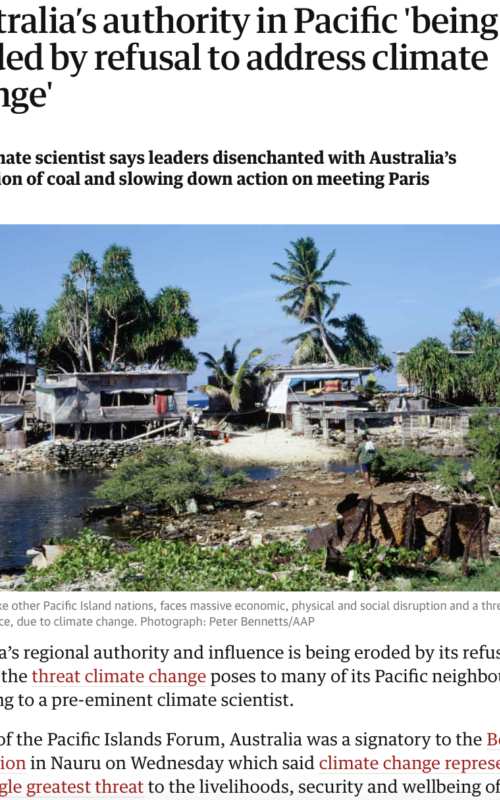
The Guardian
“The problem for Australia is it doesn’t have credibility on climate. Australia is an important player for many of the Pacific Island countries, well-respected and well-liked by the populations and the political leaders, but on climate change there is a chasm opening up" - Bill Hare, CEO of Climate Analytics.
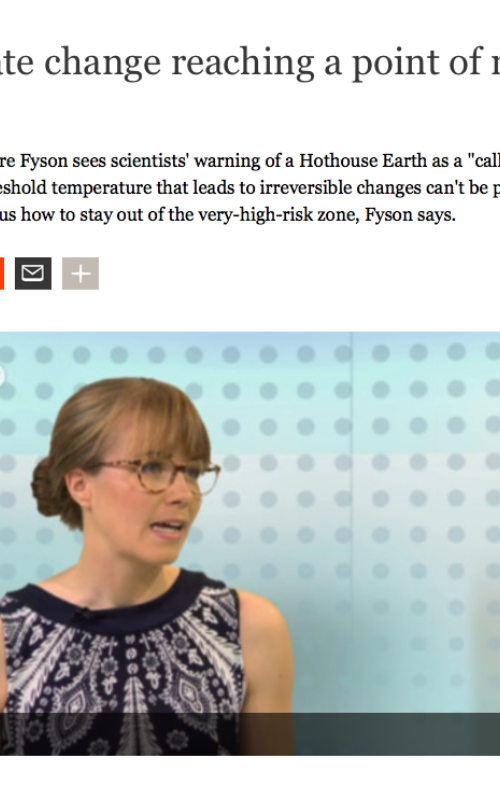
Deutsche Welle
Climate Analytics' researcher Claire Fyson sees scientists' warning of a Hothouse Earth as a "call to arms." Though the threshold temperature that leads to irreversible changes can't be pinpointed, science can tell us how to stay out of the very-high-risk zone, she says in this Deutsche Welle interview.
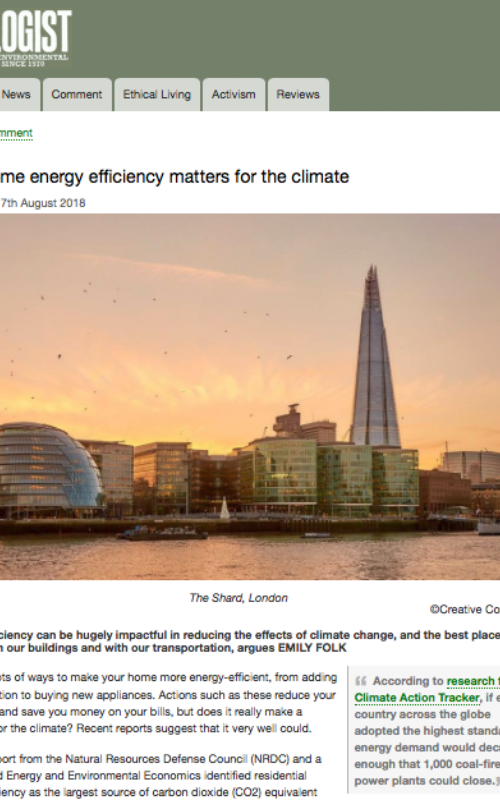
The Ecologist
Energy efficiency can be hugely impactful in reducing the effects of climate change. According to research from Climate Action Tracker, if every country across the globe adopted the highest standards, energy demand would decrease enough that 1,000 coal-fired power plants could close.
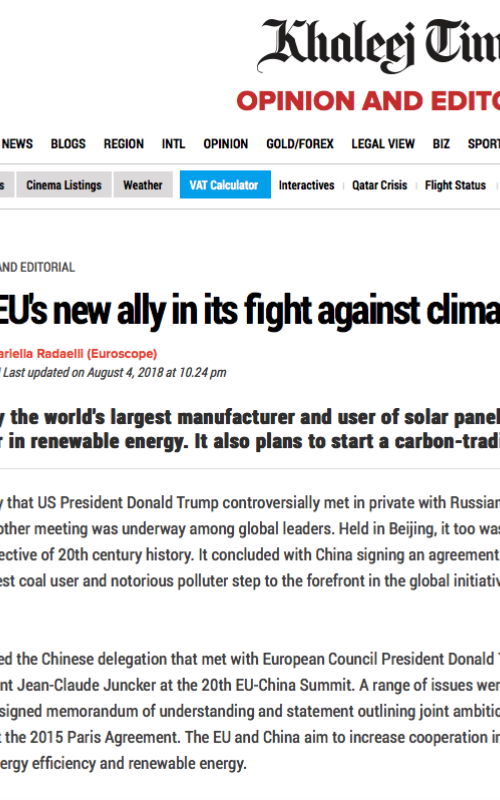
Khaleej Times
"One of the areas to watch is how the most-recent agreement between the EU and China begins to play in relation to coal investments," says Climate Analytics' CEO Bill Hare. "A number of countries are still investing in coal, including China externally, so if China begins to switch its position as it moves forward with the European Union, switching its foreign investments toward cleaner technology would have a big impact on others.
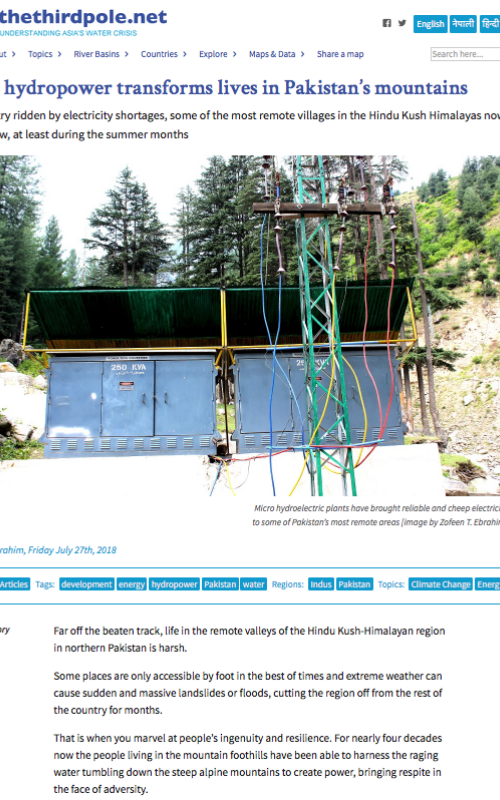
The Third Pole
Pakistan is ridden by electricity shortages but some of its most remote villages in the Hindu Kush Himalayas begin to get a steady supply from small hydropower plants. “It burns no fuel, does not produce greenhouse gas (GHG) emissions, other pollutants, or wastes associated with fossil fuels or nuclear power”, says Climate Analytics Dr Fahad Saeed. Small and micro hydropower facilities have “much smaller negative environmental impacts” than larger facilities.
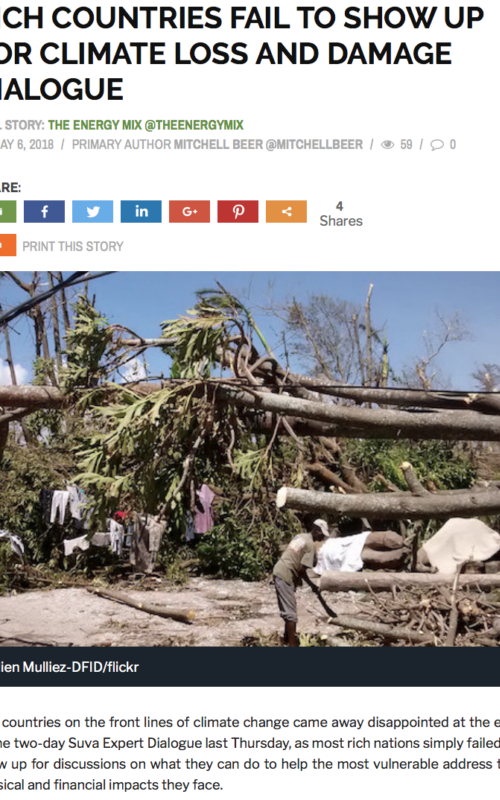
The Energy Mix
The countries on the front lines of climate change came away disappointed at the end of the two-day Suva Expert Dialogue last Thursday, as most rich nations simply failed to show up for discussions on what they can do to help the most vulnerable address the physical and financial impacts they face.
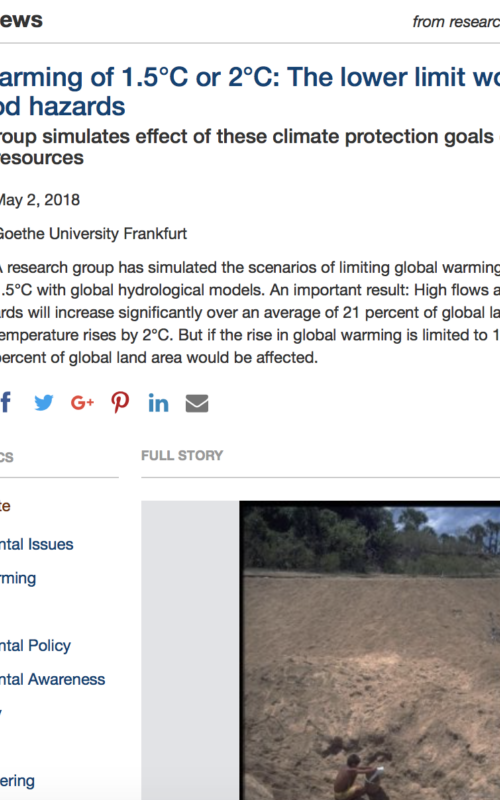
Science Daily
A research group, including Climate Analytics' Dr Fahad Saeed and Dr Carl-Friedrich Schleussner, has simulated the scenarios of limiting global warming to 2°C versus 1.5°C with global hydrological models. An important result: High flows and flood hazards will increase significantly over an average of 21 percent of global land area if the temperature rises by 2°C. But if the rise in global warming is limited to 1.5°C only 11 percent of global land area would be affected.
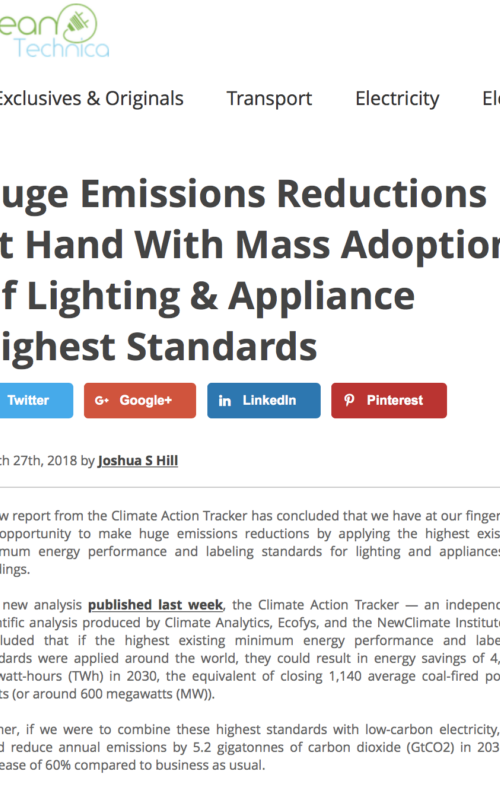
CleanTechnica
A new report from the Climate Action Tracker has concluded that we have at our fingertips the opportunity to make huge emissions reductions by applying the highest existing minimum energy performance and labeling standards for lighting and appliances in buildings.
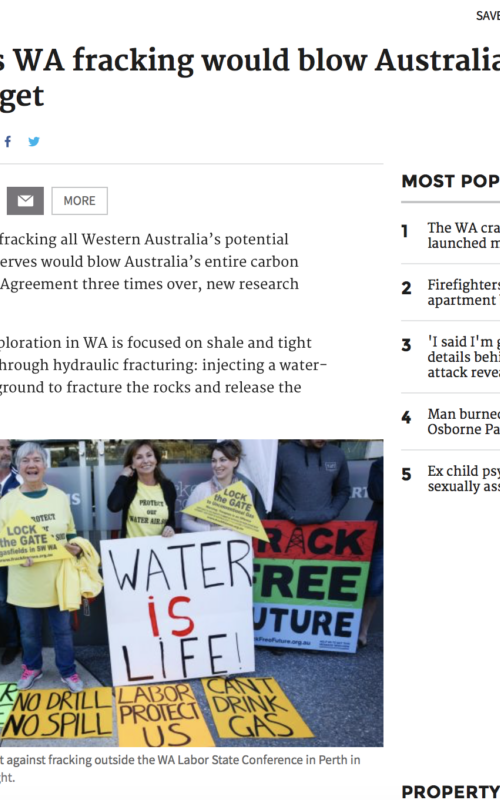
WA Today
Carbon pollution from fracking all Western Australia’s potential unconventional gas reserves would blow Australia’s entire carbon budget under the Paris Agreement three times over, new research shows. German-based researcher Climate Analytics last week released Western Australia's Gas Gamble - Implications of natural gas extraction in WA.
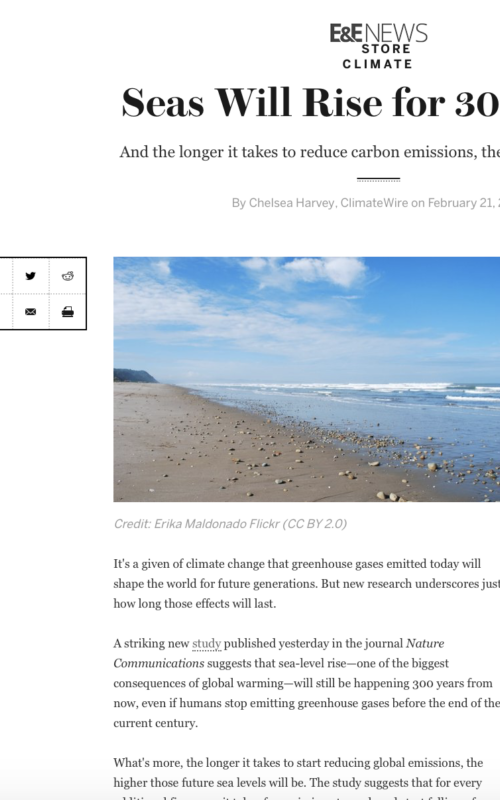
Scientific American
It's a given of climate change that greenhouse gases emitted today will shape the world for future generations. But new research underscores just how long those effects will last. A striking new study published yesterday in the journal Nature Communications suggests that sea-level rise—one of the biggest consequences of global warming—will still be happening 300 years from now, even if humans stop emitting greenhouse gases before the end of the current century.